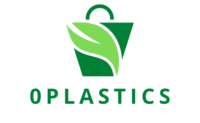
What is the future of plastic alternatives, and how can they contribute to a more sustainable future?
The future of plastic alternatives holds great promise and is integral to achieving a more sustainable future. Here’s how these alternatives are shaping the path to sustainability: 1. Reduced Environmental Impact: 2. Resource Efficiency: 3. Circular Economy: 4. Innovation and Research: 5. Consumer Awareness: 6. Policy Support: 7. Sustainable Supply Chains: 8. Collaboration and Partnerships: 9. Improved Performance: 10. Economic Viability: Plastic alternatives, ranging from biodegradable materials to recyclable options, are at the forefront of a more sustainable future. Their adoption addresses the pressing issue of plastic pollution, conserves natural resources, reduces carbon emissions, and promotes a shift towards responsible consumption and production. With ongoing innovation, informed consumer choices, supportive policies, and industry collaboration, these alternatives will play a pivotal role in creating a more sustainable and environmentally friendly world.






























